Introduction
How Long Can Parakeets Go Without Water: Parakeets, with their vibrant plumage and cheerful chirps, are popular pets around the world. These small, intelligent birds, also known as budgerigars or budgies, have captured the hearts of many bird enthusiasts due to their playful personalities and relatively low maintenance requirements. However, like all living creatures, parakeets smart require essential resources to survive, and one of the most crucial of these is water. Water is a fundamental element of life, and all animals, including parakeets, depend on it for various bodily functions. Parakeets, being no exception, need a constant supply of clean, fresh water to maintain their health and well-being.
The biology and behavior of parakeets, as well as their water requirements. Parakeets originate from arid regions of Australia, where water sources can be scarce. Over time, they have adapted to survive in these conditions, developing certain physiological mechanisms and behaviors that enable them to conserve water efficiently. However, their adaptation to arid environments doesn’t mean they can thrive without water altogether. In water in a parakeet’s life, their natural abilities to manage water scarcity, and the signs of dehydration in these birds.
We will also discuss the factors that can influence how long a parakeet can go without water, such as its age, overall health, and environmental conditions. By gaining a better understanding of these factors, parakeet owners can ensure that their feathered friends receive the care and attention they need to lead happy and healthy lives. So, let’s embark on a journey into the world of parakeets and their water requirements to can parakeets go without water.
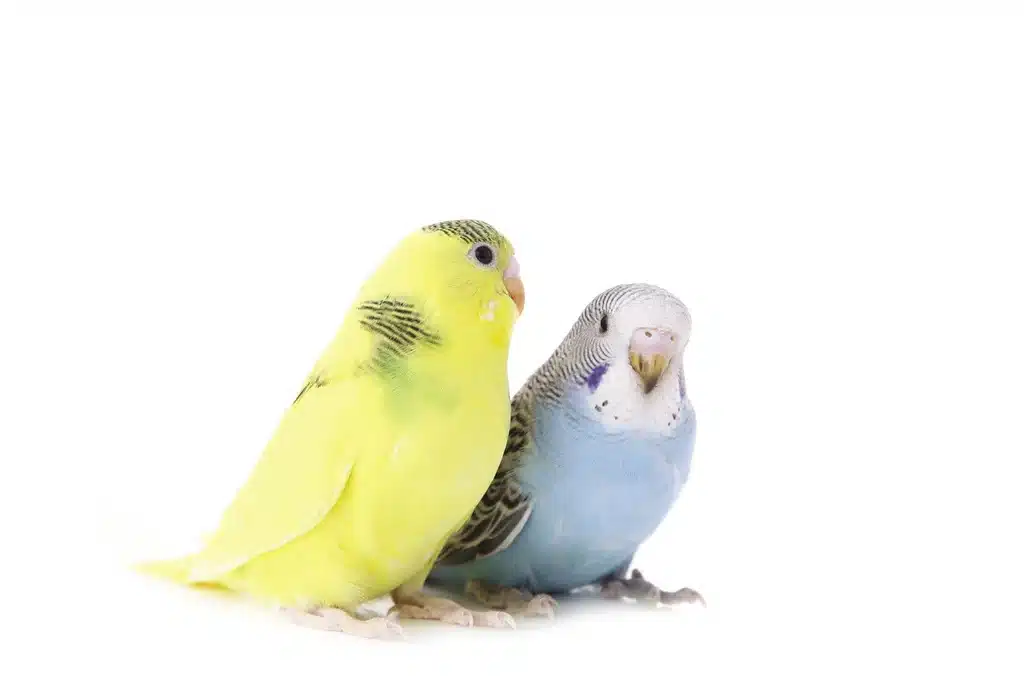
What happens if a parakeet doesn’t drink water?
If the water is clean and fresh and he still isn’t drinking, add a few drops of honey to entice him. You can also replace the water with an oral electrolyte solution or a diluted sports drink. Offer bottled drinking or spring water so that he isn’t absorbing chlorine or heavy metals found in tap water.
Prolonged dehydration can have severe consequences for a parakeet’s vital organs. Without sufficient water, their organs, including the kidneys and liver, may not function properly. Over time, this can lead to chronic health issues and organ damage. Kidney stones and liver disease are just a couple of the conditions that can result from chronic dehydration.
Water plays a crucial role in digestion for parakeets. Lack of water can lead to constipation and impede the normal passage of food through their digestive system. This can cause discomfort, pain, and even blockages, which may require veterinary intervention. Dehydration can affect the condition of a parakeet’s feathers and skin. Inadequate water intake can result in dry and brittle feathers, which can lead to issues like feather plucking.
Moreover, dehydrated skin can become flaky and prone to irritation, making the bird uncomfortable. Dehydration can also lead to changes in a parakeet’s behavior. Irritability, aggression, or excessive vocalization may occur as a result of discomfort and distress caused by dehydration.
Can escaped parakeets survive?
While parakeets are intelligent, they can’t always adapt to their surroundings. As a result, escaped parakeets are more likely to survive in warmer urban areas than in colder rural or wild areas that are not well-suited.
Parakeets, also known as budgerigars, are originally from the arid regions of Australia, and they have evolved to adapt to various environments. In some areas, escaped parakeets may find conditions similar to their natural habitat, which can increase their chances of survival. Their natural instincts, including foraging for food and seeking shelter, can kick in, helping them navigate their newfound freedom.
One of the key factors determining the survival of escaped parakeets is their ability to find food. In the wild, they primarily feed on seeds, fruits, and vegetation. In urban areas, they might find sources of food such as bird feeders, gardens, or even leftover human food. However, the availability of suitable food sources can vary widely depending on the location and season, and parakeets may face challenges finding adequate nutrition.
Parakeets, especially when they are out in the open, can be vulnerable to predators such as birds of prey, cats, and even larger birds. Their bright colors and relatively small size can make them easy targets. The ability of escaped parakeets to withstand local climate conditions and weather is another crucial factor. Harsh winters or extreme heat can pose significant challenges to their survival, especially if they lack suitable shelter.
How often do parakeets poop?
A healthy parakeet will poop every 5 to 10 minutes (6-12 times an hour). Again, this aspect depends heavily on the subspecies of parakeet that you own. Small birds poop more often than adult parakeets. Budgies, for instance, poop every 12 to 15 minutes, for a total of 40-50 times a day.
Parakeets have relatively high metabolic rates, and as a result, they tend to poop quite frequently. On average, a healthy parakeet may poop every 10 to 20 minutes during the day. This means that over the course of a day, you can expect your parakeet to produce numerous small droppings.
Parakeet pooping frequency can vary based on several factors, including their diet, activity level, and overall health. For instance, if a parakeet has recently eaten a watery or high-moisture food, it may produce more liquid in its droppings. Similarly, increased physical activity or excitement can prompt more frequent pooping.
Understanding your parakeet’s typical pooping pattern is essential for identifying potential health issues. Changes in the frequency, color, consistency, or odor of droppings can be indicators of health problems. Watery or loose droppings might signal digestive issues or illness, while blood in the droppings should be taken seriously and promptly addressed by a veterinarian.
Do parakeets need a bath?
Birds should be encouraged to bathe often, as their feathers and skin will look healthier if they bathe frequently. Start by offering a bath to your bird once or twice weekly. You may notice that your bird has a preference about the time of day it likes to bathe.
Bathing plays a crucial role in maintaining a parakeet’s feather health. It helps remove dust, dirt, and excess oils that can accumulate on their feathers over time. Clean feathers are essential for proper insulation and flight. Bathing also helps prevent feather plucking, a behavior that can arise when a bird feels discomfort due to dirty or itchy feathers.
Bathing is a natural way for parakeets to regulate their body temperature. In the wild, parakeets often encounter rain showers or dew, which helps cool them down during hot weather. Offering your pet parakeet the opportunity to bathe allows them to mimic this natural behavior and stay comfortable, especially in warmer climates or heated indoor environments.
Parakeets may also ingest some water during their baths, contributing to their hydration. While parakeets primarily obtain their water from drinking, any moisture from bathing can be beneficial, especially if they are not drinking enough. Bathing can be an enjoyable and mentally stimulating activity for parakeets. It them with an opportunity to play and explore their environment, which can alleviate boredom and promote mental well-being.
What happens if a parakeet gets wet?
If your bird is wet, it is because it chose to be and as owners we need to realise that. A bird is fully capable of drying itself and a little bit of shivering in the process is normal and even healthy. The slight shaking of feathers that shivering invokes, can help a bird shake water out of its feathers.
One of the primary concerns when a parakeet gets wet is potential damage to its feathers. Parakeets have delicate plumage designed to trap air and insulation. When wet, their feathers lose their ability to proper insulation and can become heavy, making it difficult for the bird to fly. Wet feathers can become clumped together, leading to discomfort and loss of the insulating layer.
Wet feathers can lead to rapid loss of body heat in parakeets. This can result in chilling, which is especially problematic if the bird is in a cold environment. Parakeets are small and have a high metabolic rate, which means they can lose body heat quickly. Chilling can lead to stress, illness, or even hypothermia if not addressed promptly.
Being wet can be a stressful experience for parakeets. The sensation of wet feathers, discomfort, and the inability to fly as effectively as usual can cause anxiety. Prolonged stress can have negative effects on a parakeet’s health and well-being.
Do parakeets need to be washed?
If a parakeet becomes soiled by something fatty, sugary, or toxic, the bird will need cleaning, as you don’t want it to eat any of the nasty stuff during normal bathing or preening. Remove as much dirt as you can using a soft wet cloth.
Parakeets are experts at self-grooming. They use their beaks to clean and preen their feathers meticulously. This behavior helps to keep their plumage clean, shiny, and in good condition. By regularly preening their feathers, parakeets remove dirt, dust, and debris.
While parakeets are generally good at maintaining their hygiene, it’s essential to keep an eye on their overall health. If you notice changes in their grooming habits, such as a sudden decrease in preening or signs of distress like feather plucking, it may be an indication of an underlying health issue. In such cases, it’s advisable to consult with an avian veterinarian.
Maintaining a clean and safe environment for your parakeet is essential for their well-being. Regularly cleaning their cage, perches, and food and water dishes helps prevent the buildup of dirt and bacteria, which can affect their health.
How do you attract a lost parakeet?
Parakeets’ tendency to seek out high places doesn’t assist in their recapture, but the trick is to lure the bird down to your millet-loaded hand or portable, food-stuffed cage. Try calling his name while holding out the millet; or play the recording of the talking parakeets.
Begin by searching the area where your parakeet was last seen. Parakeets are generally not strong flyers over long distances, so they are likely to be close by. Check under furniture, behind curtains, in houseplants, and other potential hiding spots. If you have other pets in the house, especially cats or dogs, make sure they are kept away from the area where your parakeet was last seen. Other animals can be a source of stress for the lost bird.
Parakeets are attracted to familiar sounds. Try playing a recording of your parakeet’s vocalizations or making the sounds they are accustomed to. Hearing these sounds may encourage them to call back or reveal their location. Place a dish of their favorite food and water near where they were last spotted. Fresh fruits, vegetables, and millet spray are good choices. The scent of their favorite treats may lure them out of hiding.
Keep the area where your parakeet was last seen as quiet and calm as possible. Loud noises and sudden movements can frighten a lost bird further into hiding. Create flyers with a clear photo of your parakeet, your contact information, and details about where and when it was lost. Post these flyers in your neighborhood and share them on social media platforms, local community groups, and online forums for lost and found pets.
Can you touch a parakeets back?
To help your bird build a healthy bond with both you and other people, keep caresses and petting limited to the head or feet only, and ask others to do the same. The reason for this is that birds’ sexual organs are located directly under the wings on a bird’s back.
Parakeets have individual comfort zones when it comes to physical contact. While some may enjoy being gently touched on their heads, necks, or beaks, many parakeets are sensitive about being touched on their backs and bodies. This sensitivity is partly due to their natural instincts, as in the wild, they are not typically handled by other birds or animals.
Building trust with your parakeet is essential for any physical interaction. Spend time near their cage, talk to them softly, and offer treats to establish a positive association with your presence. Over time, your parakeet may become more comfortable with you and more receptive to gentle physical contact.
Pay close attention to your parakeet’s body language. If they puff up their feathers, lean away from your hand, or show signs of discomfort such as moving away or vocalizing in distress, it’s a clear indication that they do not want to be touched on their back or body.
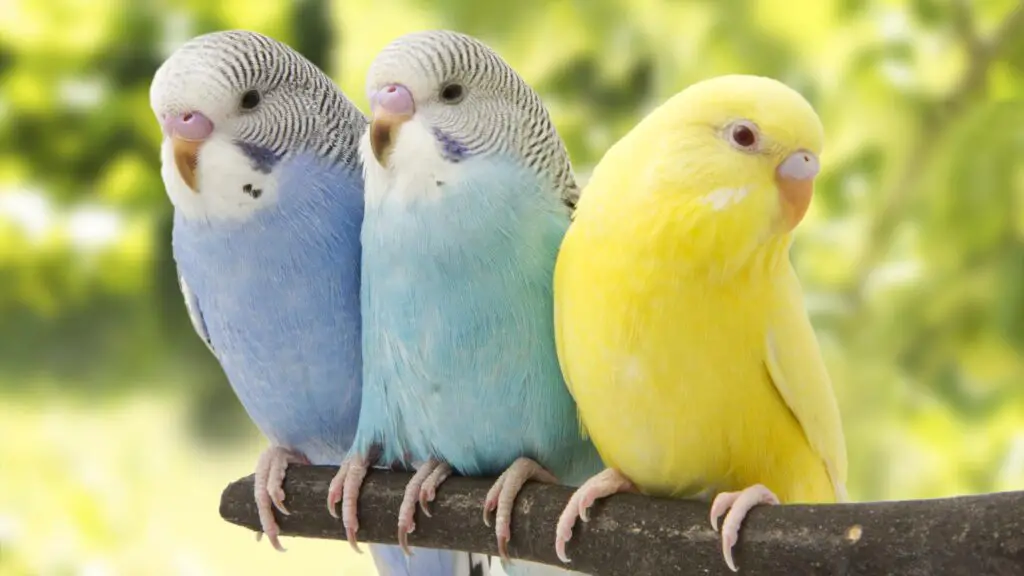
Conclusion
Parakeets can go without water is a critical one for those who care for these charming and intelligent birds. While parakeets have evolved to adapt to arid environments and can withstand periods of water scarcity better than some other animals, it is essential to that water remains an absolute necessity for their survival and well-being. Our exploration into this topic has revealed that parakeets have remarkable abilities to conserve water through their physiological adaptations and behavioral strategies. However, this doesn’t grant them immunity from dehydration or the harmful consequences it can bring.
Dehydration in parakeets can occur relatively quickly, and the signs of it are often subtle, making regular monitoring of their water intake a vital responsibility for any parakeet owner. The factors influencing how long a parakeet can go without water are multifaceted. Age, overall health, and environmental conditions all play crucial roles in determining a parakeet’s water requirements. Younger birds and those with underlying health issues may be more susceptible to parakeet water dehydration and may require more frequent access to water. Environmental factors, such as temperature and humidity, can impact a parakeet’s water needs.
During hot and dry conditions, parakeets may need more water to stay properly hydrated. As responsible caregivers of these delightful avian companions, it is our duty to ensure that they always have access to clean, fresh water. Water should be in a manner that minimizes the risk of contamination and spoilage. Regularly cleaning and replenishing their water dishes is crucial for their health. Parakeets, like all living beings, rely on water for their survival, and it is our responsibility as their caretakers to meet their hydration needs. While they possess impressive adaptations for water conservation, parakeets should never be subjected to prolonged periods without access to water.

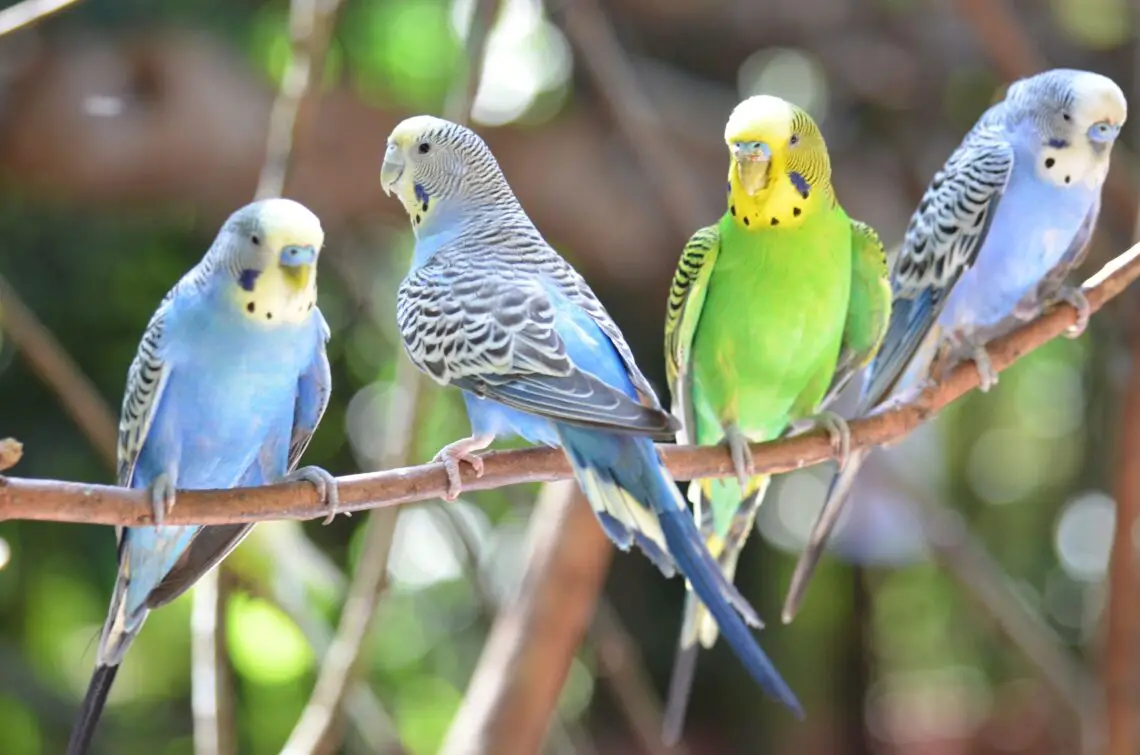
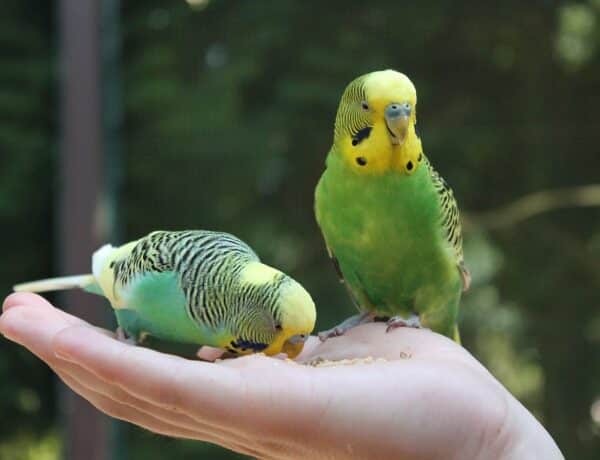
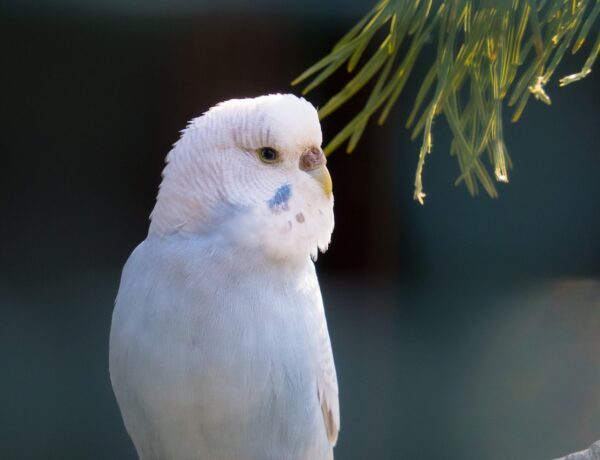
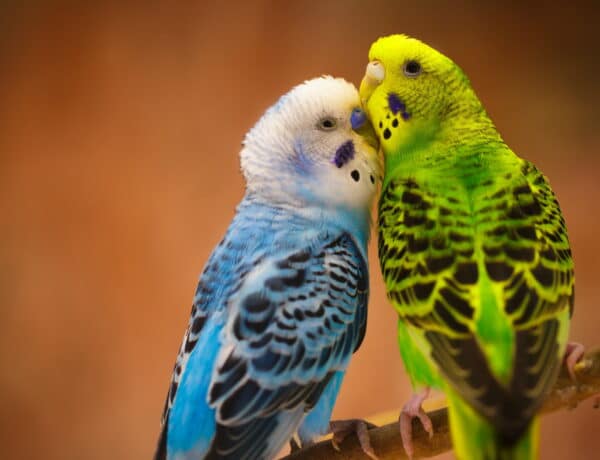
No Comments